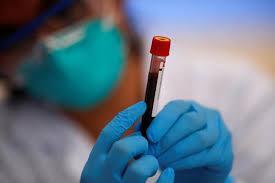
Blood Test that can Detect Cancer 3 Years Before Symptoms Appear Developed
Cancer is one of the leading causes of death worldwide, with millions of people affected by this devastating disease every year. While there are various methods to detect cancer, most tests are only effective once symptoms appear, making early detection and treatment challenging. However, a breakthrough in cancer research may change the game, as scientists at Johns Hopkins University have developed a blood test that can detect cancer three years before symptoms appear.
The test, known as multi-cancer early detection (MCED) test, uses a combination of biomarkers to identify the presence of cancer in a person’s blood. According to the researchers, the test is capable of detecting multiple types of cancer, including lung, breast, colon, and ovarian cancer, at an early stage.
The development of this test is a significant milestone in cancer research, as it has the potential to provide an early warning system for patients. “Detecting cancers years before their clinical diagnosis could help provide management with a more favorable outcome,” said Nickolas Papadopoulos, one of the scientists who developed the test.
The MCED test works by analyzing the DNA and proteins present in a person’s blood. The test uses a combination of machine learning algorithms and advanced bioinformatics tools to identify patterns in the data that are indicative of cancer. The test is capable of detecting cancer even when the disease is in its earliest stages, making it a powerful tool for early detection and prevention.
The researchers behind the MCED test used a large dataset of blood samples from patients with various types of cancer to develop and validate the test. The results of the study were published in the journal Cancer Discovery, and the findings are nothing short of remarkable.
In the study, the researchers found that the MCED test was able to detect cancer in 72% of patients who had not yet shown symptoms of the disease. This is a significant improvement over traditional methods of cancer detection, which often require patients to exhibit symptoms before a diagnosis can be made.
The MCED test has the potential to revolutionize the way we approach cancer detection and treatment. By detecting cancer at an early stage, patients may be able to receive treatment earlier, which could improve their chances of survival and reduce the risk of complications.
The test is not without its limitations, however. The researchers note that the test is not yet ready for widespread use, and further testing is needed to validate its effectiveness in different patient populations. Additionally, the test may not be able to detect all types of cancer, and it is not a replacement for regular cancer screenings.
Despite these limitations, the development of the MCED test is a significant breakthrough in cancer research, and it has the potential to save countless lives. The test is a testament to the power of human ingenuity and the importance of continued investment in medical research.
In conclusion, the development of a blood test that can detect cancer three years before symptoms appear is a major breakthrough in cancer research. The MCED test has the potential to provide an early warning system for patients, and it could significantly improve treatment outcomes. While the test is not yet ready for widespread use, it is an important step forward in the fight against cancer, and it has the potential to save countless lives.
News Source:






